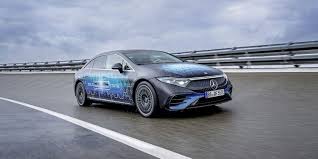
Breaking News
 World War III Is Still On The Table: Europe Wants Boots On The Ground In Ukraine
World War III Is Still On The Table: Europe Wants Boots On The Ground In Ukraine
 Gov. Katie Hobbs boosts Arizona border security with executive order
Gov. Katie Hobbs boosts Arizona border security with executive order
 Pilot refuses chemtrailling now finds himself in court.
Pilot refuses chemtrailling now finds himself in court.
 H.A.A.R.P. Geoengineering is used for depopulation.
H.A.A.R.P. Geoengineering is used for depopulation.
Top Tech News
 Musk Begins Testing His Starlink Terminals in US Airspace System
Musk Begins Testing His Starlink Terminals in US Airspace System
 Mercedes' Solid-State Battery Prototype Comes Out Of The Lab, Onto The Road
Mercedes' Solid-State Battery Prototype Comes Out Of The Lab, Onto The Road
 Scientists discover mysterious form of energy in Egypt's pyramids that should only exist...
Scientists discover mysterious form of energy in Egypt's pyramids that should only exist...
 Microsoft Majorana 1 Chip Has 8 Qubits Right Now with a Roadmap to 1 Million Raw Qubits
Microsoft Majorana 1 Chip Has 8 Qubits Right Now with a Roadmap to 1 Million Raw Qubits
 The car that lets you FLY over traffic jams! Futuristic £235,000 vehicle takes flight...
The car that lets you FLY over traffic jams! Futuristic £235,000 vehicle takes flight...
 Floating nuclear power plants to be mass produced for US coastline
Floating nuclear power plants to be mass produced for US coastline
 The $132 "Dumfume" LiFePO4 Battery Tested! Holy cow...
The $132 "Dumfume" LiFePO4 Battery Tested! Holy cow...
 Virginia's Game-Changing Nuclear Fusion Plant Set To Deliver Clean Energy And Disrupt The Fossil
Virginia's Game-Changing Nuclear Fusion Plant Set To Deliver Clean Energy And Disrupt The Fossil
 How This Woman Turned Arizona's Desert into a Farmland Oasis
How This Woman Turned Arizona's Desert into a Farmland Oasis
 3D-printed 'hydrogels' could be future space radiation shields for astronaut trips to Mars
3D-printed 'hydrogels' could be future space radiation shields for astronaut trips to Mars
Mercedes' Solid-State Battery Prototype Comes Out Of The Lab, Onto The Road

Solid-state batteries have been a long time coming. For years, it felt like they were stuck in the experiment phase, but that's finally starting to change with more real-world applications.
Mercedes-Benz and American battery start-up Factorial Energy have developed a prototype EQS equipped with a solid-state battery. The companies claim it's the "world's first solid-state battery vehicle from a global OEM." It's already out on the road doing test runs.
The EQS is expected to deliver 620 miles (1,000 kilometers) of range, the automaker announced on Monday. That's an improvement of over 25% compared to the WLTP range of the current EQS 450+ in the U.K., which stands at around 481 miles. The EQS gets a usable battery capacity of 118 kilowatt-hours.
WLTP figures are typically about 22% higher than EPA estimates, so the EQS would still deliver about 527 miles of range by EPA standards. That's very close to what a Lucid Air can already achieve with a traditional NMC pack.
But the EQS' solid-state pack brings weight and efficiency advantages. The automaker claims that the solid-state pack delivers 25% more range with the same size and weight of current lithium-ion packs. And there's potential to increase the range up to 40%.
A traditional lithium-ion battery uses a liquid electrolyte to move electrons between charge cycles. A solid-state battery uses a solid electrolyte, allowing more energy density and improved fire safety. It also promises significant weight reductions.
Semi-solid-state batteries use a gel-like electrolyte, splitting the difference between a traditional liquid electrolyte and a true solid-state solution. Several Chinese EVs like the Nio ET7 and IM L6 are already equipped with such packs. They're considered a "hybrid" battery solution that can leverage existing manufacturing processes while being faster to scale up.
Autocar reported that the battery being tested on the EQS marks the initial step towards incorporating Factorial's more advanced "Solstice" all-solid-state battery (ASSB). InsideEVs has reached out to Factorial to confirm if that initial step involves a semi-solid state pack or an ASSB.
The battery on the EQS also features a lithium-metal anode, which stores more energy than traditional graphite anodes in the same amount of space. However, studies suggest that dendrite formation can be a concern for lithium-metal chemistries. They are small metal projections that can short a battery, and have been a major obstacle in the development of solid-state batteries. Mercedes and Factorial must have made some progress there, though, if they're moving forward with this design.



